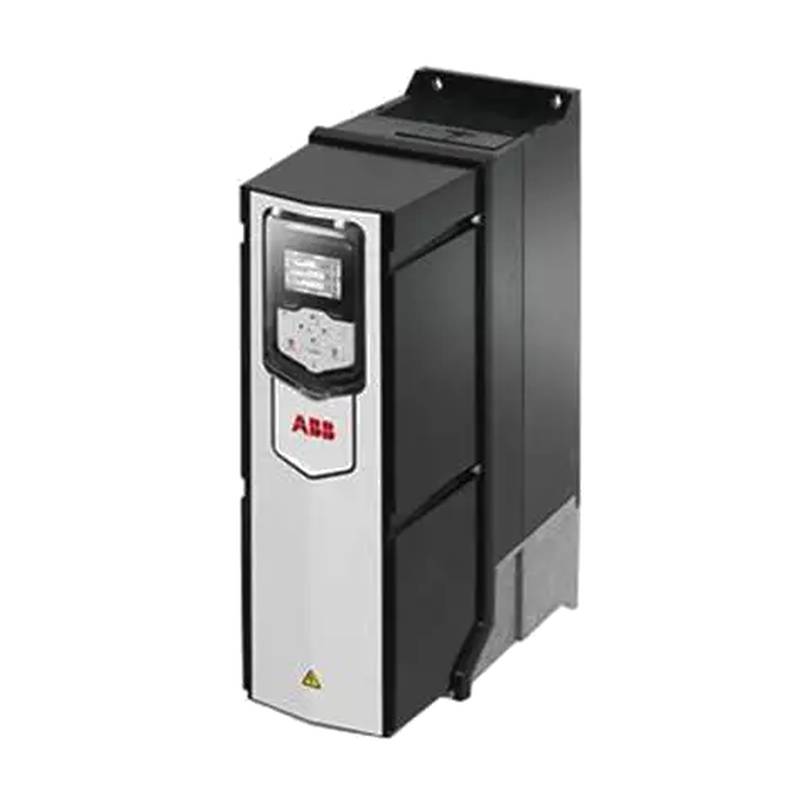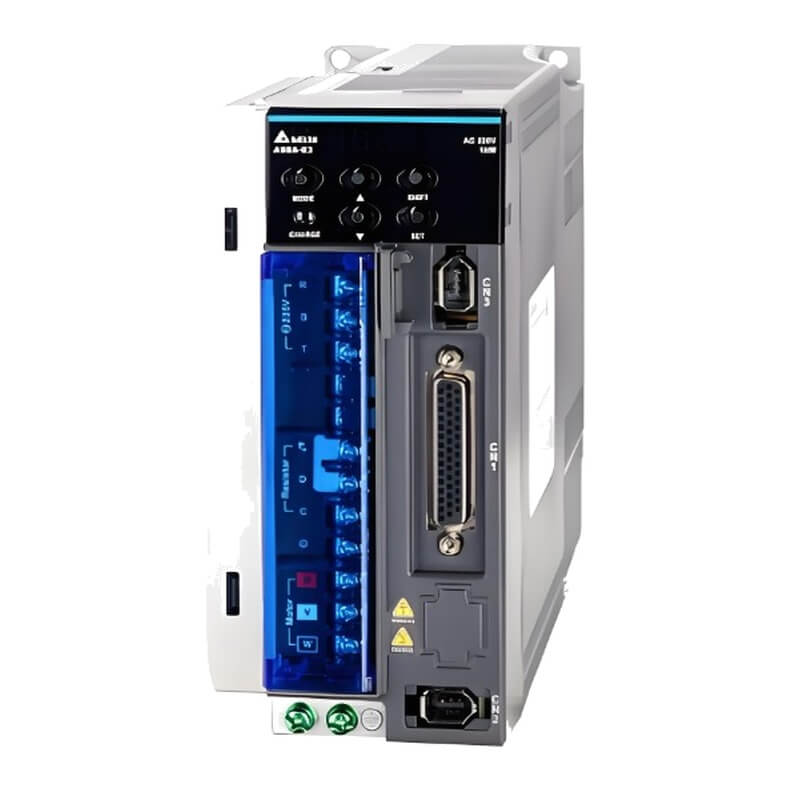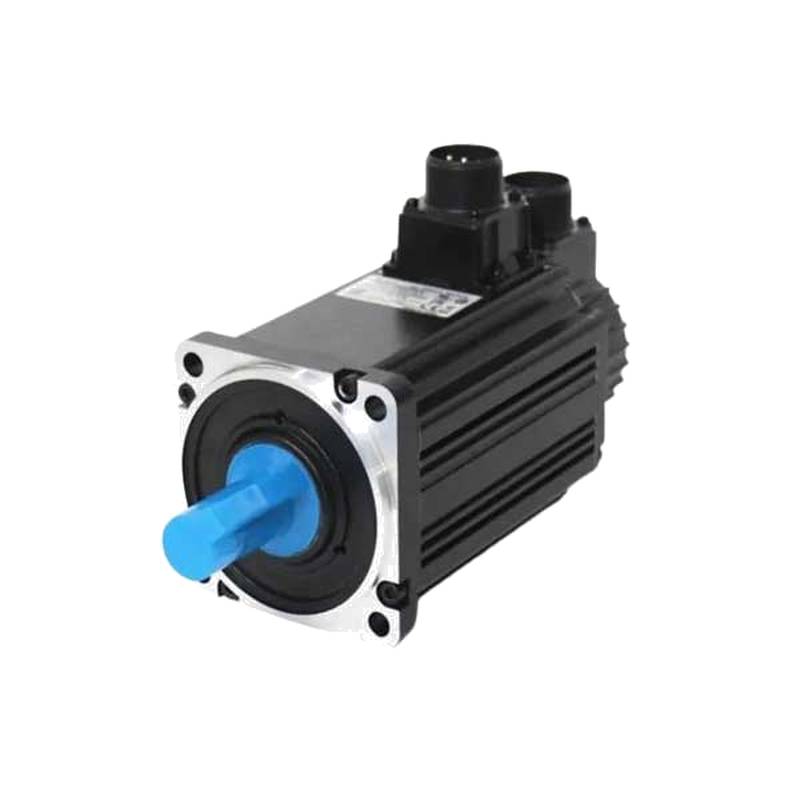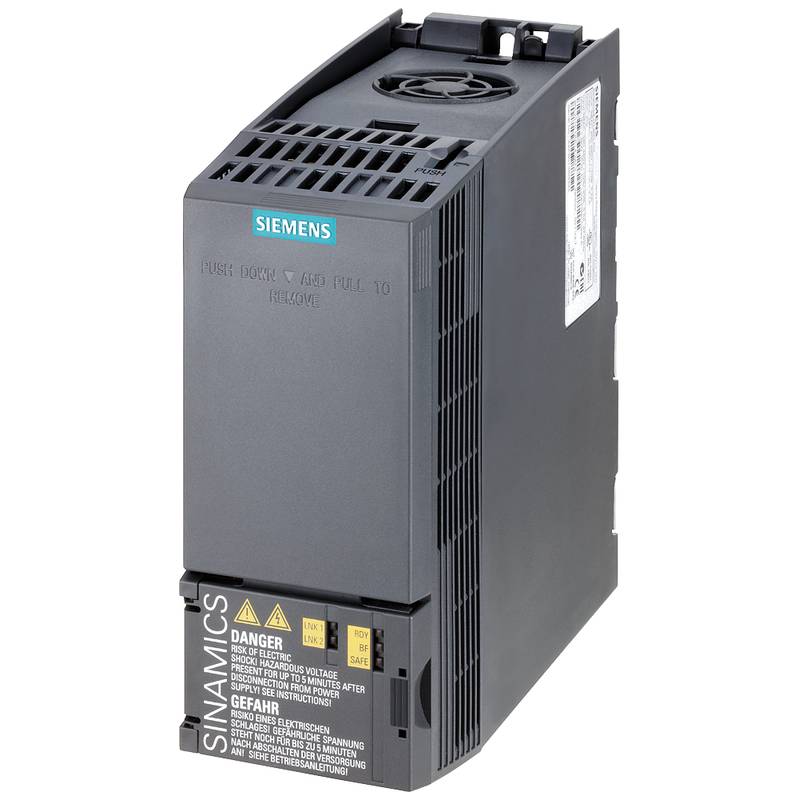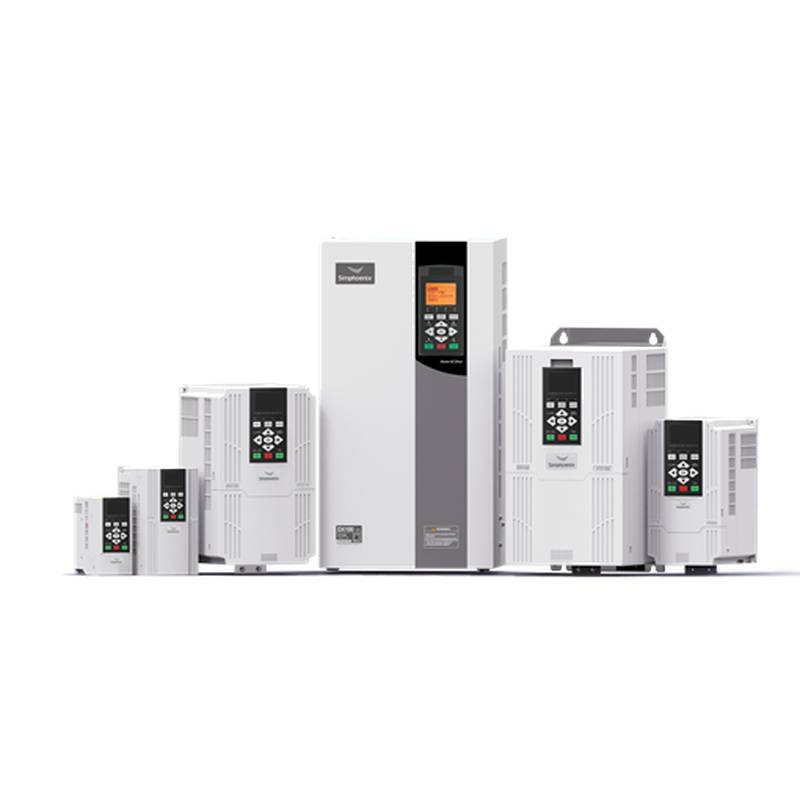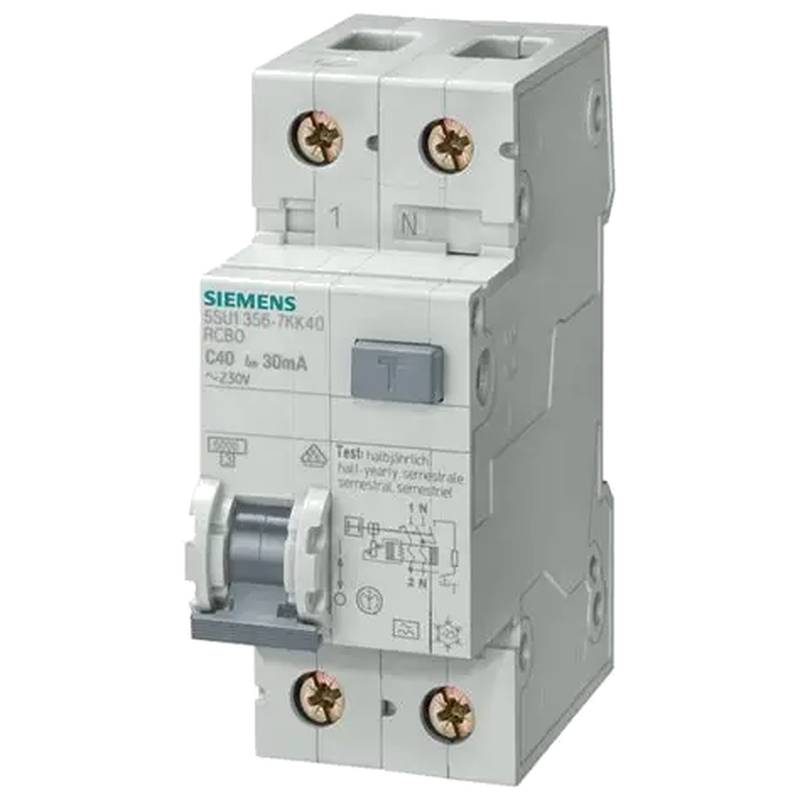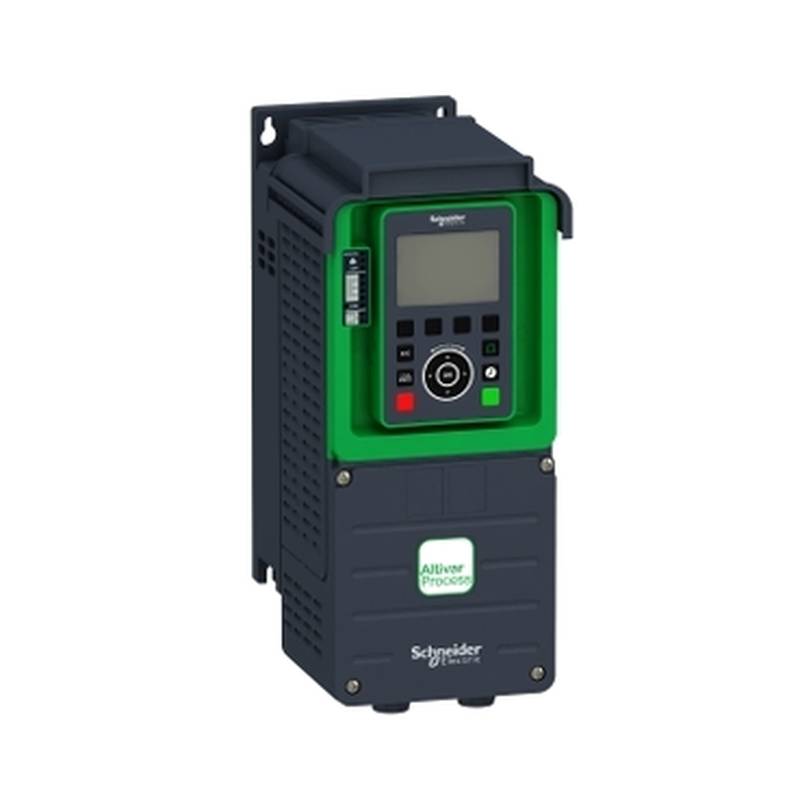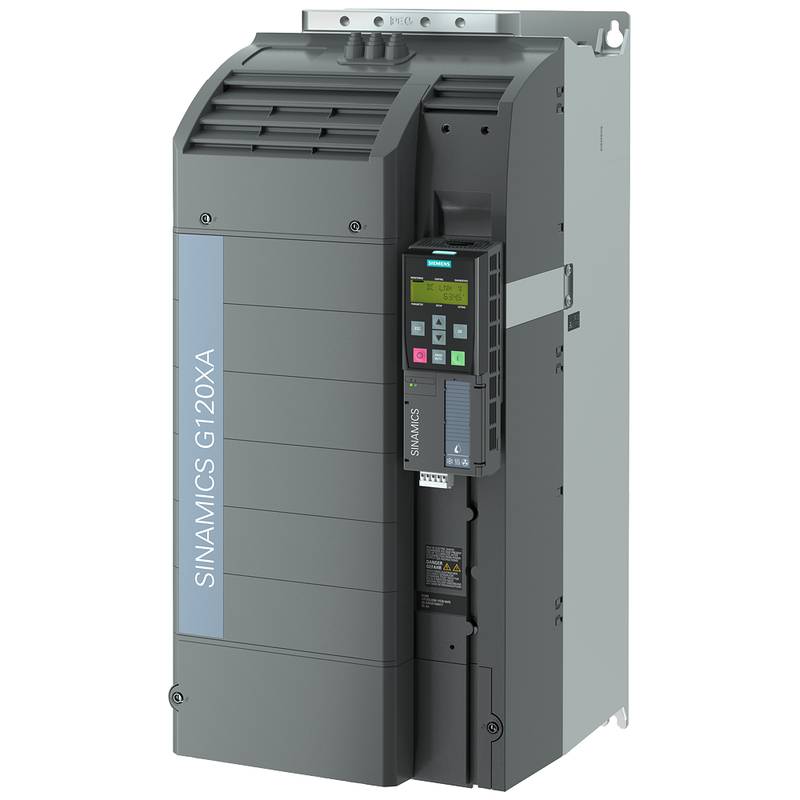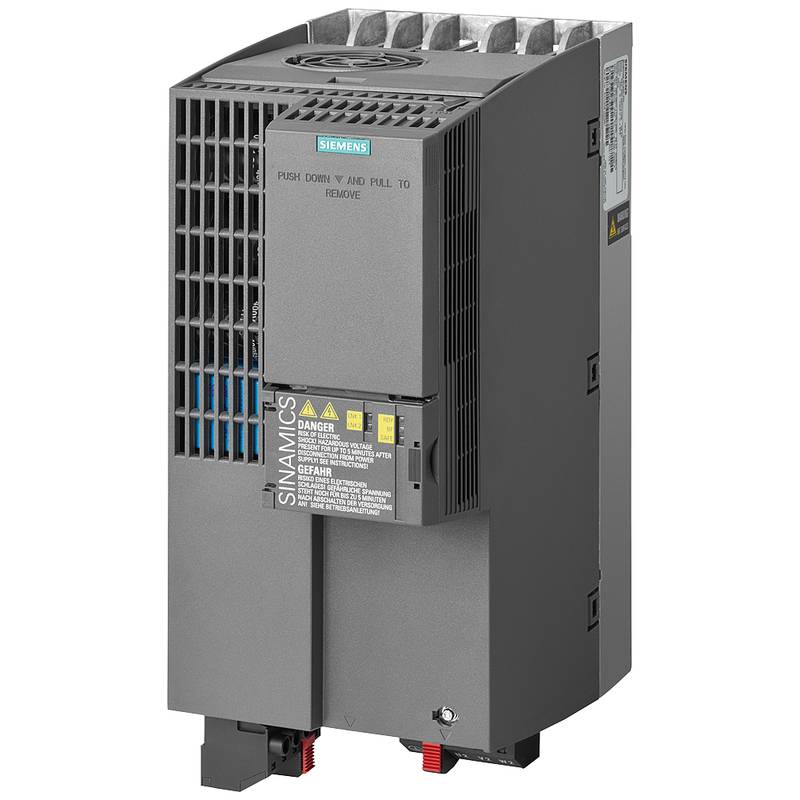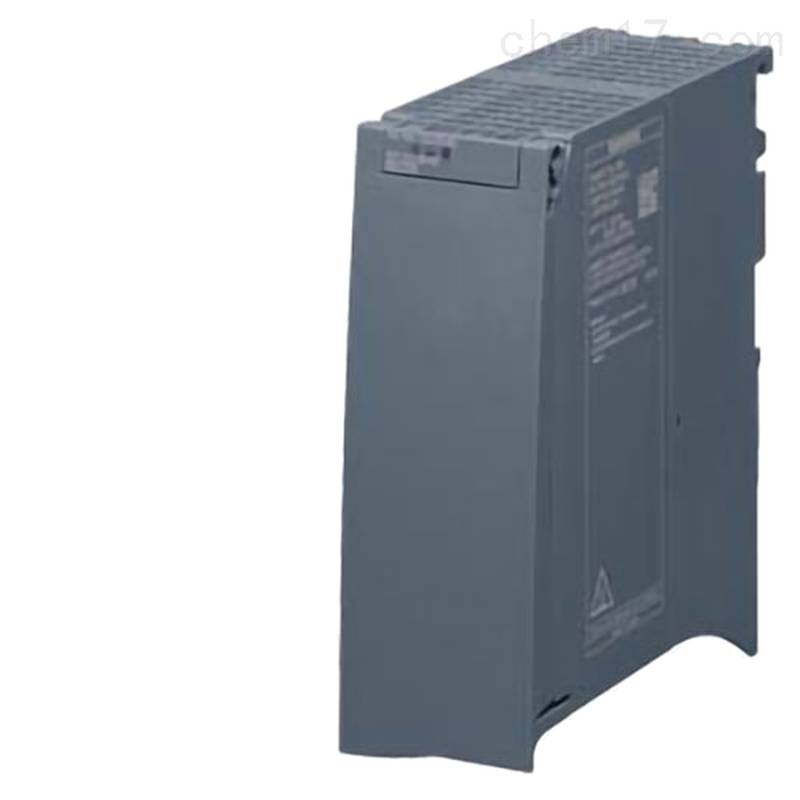
The ABB ACS880-01-032A-3 High Power Modular Inverter Drive stands as a robust solution for demanding industrial applications, offering superior control, energy efficiency, and flexibility. This inverter drive excels in variable speed applications, delivering precise motor control with its advanced Direct Torque Control (DTC) technology. Key advantages include its modular design for easy customization and maintenance, built-in safety features, and a wide operating temperature range. With a rated power of 15 kW and an output current of 32A at 400V, the ACS880-01-032A-3 is engineered for reliability and performance.
Product Specifications
| Parameter | Value |
| :--------------------- | :------------------------ |
| Model | ACS880-01-032A-3 |
| Rated Power | 15 kW |
| Output Current (Normal) | 32 A |
| Output Current (Heavy) | 36 A |
| Input Voltage | 380-415 V |
| Output Voltage | 0-Input Voltage |
| Enclosure Class | IP21 |
| Dimensions (H x W x D) | 549 x 250 x 236 mm |
| Weight | 15 kg |
| Ambient Temperature | -25 to +50 °C (derating) |
| Control Method | DTC, Vector control, SC |
Core Features & Market Positioning
The ABB ACS880-01-032A-3 distinguishes itself through its highly adaptive modular architecture, allowing for seamless integration of various options like communication protocols, filters, and braking units. This flexibility positions it as a versatile choice for diverse industrial environments. ABB's proprietary Direct Torque Control (DTC) ensures exceptional motor performance, accurate speed regulation, and robust torque response even under fluctuating load conditions, a significant competitive advantage in process control and automation. The drive's energy-saving features, including optimized energy consumption profiles and standby modes, contribute to reduced operational costs and a lower environmental footprint, aligning with modern industrial sustainability goals.
Key Application Scenarios
This high-power modular inverter drive is ideally suited for a broad spectrum of industrial sectors. Its precise motor control capabilities make it invaluable in material handling systems, such as conveyors and cranes, where smooth acceleration and deceleration are critical. In the pump and fan industry, the ACS880-01-032A-3 optimizes flow and pressure by precisely matching motor speed to system demand, leading to substantial energy savings. It also finds extensive use in the manufacturing and processing industries, powering machinery like extruders, mixers, and machine tools that require dynamic torque and speed adjustments for optimal production output and quality control.
Practical System Integration Guidance
Integrating the ABB ACS880-01-032A-3 into existing systems is streamlined by its intuitive design and comprehensive documentation. Proper installation involves ensuring adequate ventilation, adhering to specified clearances, and utilizing appropriate cable glands for the IP21 enclosure. Wiring configurations must strictly follow the manual's guidelines, paying close attention to power, control, and grounding connections to prevent electrical noise and ensure safety. Commissioning typically involves configuring motor parameters, setting speed references, and defining I/O configurations via the drive's keypad or commissioning software. For advanced control, programming examples for various communication protocols like Modbus TCP or Profinet are available to facilitate seamless integration into plant-wide automation networks.
Operation and Risk Mitigation
Safe and efficient operation of the ABB ACS880-01-032A-3 is paramount. Users must be thoroughly trained on its operation and safety protocols, including emergency stop procedures and lockout/tagout measures during maintenance. Built-in safety functions, such as Safe Torque Off (STO), provide a high level of personnel protection. Common troubleshooting often involves diagnosing fault codes displayed on the drive's interface. Critical errors might relate to overcurrent, overvoltage, or undervoltage conditions, often stemming from incorrect parameter settings, motor issues, or power supply fluctuations. Adhering to the operating manual's guidance on fault diagnostics and resolution is essential for minimizing downtime and preventing equipment damage.
Scalability & Long-Term Value
The modular nature of the ABB ACS880-01-032A-3 ensures significant scalability and long-term value. Users can easily add or upgrade options, such as communication modules for enhanced network integration or braking modules for applications requiring rapid deceleration, without replacing the entire drive. Its compatibility with ABB's wider range of automation products and its support for industry-standard communication protocols allow for seamless integration into sophisticated automation architectures and Industrial Internet of Things (IIoT) platforms. This future-proof design enables plant upgrades and expansions while leveraging the existing investment in the ACS880-01-032A-3.
Frequently Asked Questions
What are the primary benefits of the ABB ACS880-01-032A-3?
This drive offers precise motor control and excellent energy efficiency. Its modular design allows for flexible customization and easier maintenance. Safety features like STO are integrated for enhanced protection.
The ABB ACS880-01-032A-3 provides reliable performance across various industrial environments. It is designed to optimize operational costs through reduced energy consumption. The drive supports advanced diagnostics for quick issue resolution.
The advanced Direct Torque Control (DTC) technology ensures accurate speed and torque output. This makes it suitable for demanding applications requiring consistent performance. Its robust construction ensures longevity.
How do I connect the ABB ACS880-01-032A-3 to a motor?
Connect the motor power cables to the drive's output terminals (T1, T2, T3). Ensure correct phasing for proper motor rotation. Use appropriately sized cables based on the motor's current rating and drive specifications.
Refer to the installation manual for precise wiring diagrams and terminal designations. Ground the motor and the drive properly to prevent electrical noise and ensure safety. Control wiring for digital and analog inputs should follow specific terminal layouts.
Verify all connections are secure before applying power. Incorrect wiring can lead to motor damage or drive failure. Always consult the latest version of the ABB ACS880 manual for detailed instructions.
What is the typical power consumption of the ABB ACS880-01-032A-3?
Power consumption varies greatly with motor load and speed. At full load, it's close to the motor's input power plus drive losses. Energy efficiency features minimize consumption at partial loads.
The drive itself has internal losses, typically around 2-3% of the power delivered to the motor. This loss is converted into heat, requiring adequate ventilation. Standby power consumption is very low when the motor is stopped.
For accurate power consumption figures, use the drive's built-in energy monitoring functions. These tools display real-time and historical energy usage data. Understanding load profiles helps optimize settings for maximum savings.
Can the ABB ACS880-01-032A-3 be controlled remotely?
Yes, remote control is a key feature of this drive. It supports various communication protocols for integration into automation systems. This allows for remote monitoring and command execution.
Protocols like Modbus TCP, Profinet, and EtherNet/IP can be enabled via optional communication modules. These modules connect the drive to industrial networks. This enables supervisory control and data acquisition (SCADA) integration.
Remote control functions include starting/stopping the motor, adjusting speed, and monitoring status. This capability is crucial for applications in inaccessible or hazardous locations. It enhances operational flexibility and efficiency.
What are the safety features of the ABB ACS880-01-032A-3?
The drive includes integrated safety functions for personnel and equipment protection. Safe Torque Off (STO) is a fundamental safety feature. It prevents unexpected motor starts and ensures safety during maintenance.
Additional safety options can be added, such as Safe Stop 1 (SS1) and Safely Limited Speed (SLS). These advanced functions provide layered safety for complex machinery. The drive complies with relevant safety standards.
Proper implementation of safety functions requires careful planning and adherence to safety guidelines. It is essential to perform safety risk assessments for the entire application. Always ensure safety functions are correctly configured and tested.
How do I reset a fault on the ABB ACS880-01-032A-3?
Faults can typically be reset via the drive's control panel keypad. Select the "Fault Reset" option from the menu. Ensure the underlying cause of the fault has been addressed before resetting.
Some faults require power cycling the drive to clear them. Consult the drive's manual for specific fault codes and their recommended reset procedures. Attempting to reset without addressing the cause may lead to recurring issues.
For persistent or critical faults, professional diagnosis may be necessary. Overcurrent, communication, or internal faults often require expert intervention. Do not force a reset if the fault condition persists.
What is the maximum ambient temperature for operation?
The drive can operate in ambient temperatures ranging from -25°C to +50°C. However, derating is required at higher temperatures to prevent overheating. Consult the manual for specific derating curves.
Operating above the maximum specified temperature without derating can lead to reduced lifespan or drive failure. Ensure adequate ventilation and cooling in the installation environment. Consider environmental factors in system design.
For extreme conditions, specialized enclosures or cooling solutions might be necessary. ABB offers accessories to enhance performance in harsh environments. Always verify operating limits for your specific application conditions.
What types of motors can be used with this drive?
The ACS880-01-032A-3 is designed to control a wide range of AC induction motors. It supports both standard and permanent magnet motors. Its flexible control modes cater to different motor types.
Key control modes include Direct Torque Control (DTC) and vector control. These modes provide precise speed and torque regulation for optimal motor performance. Ensure motor parameters are correctly entered into the drive.
Always check motor nameplate data against drive capabilities. For specific motor technologies or high-performance requirements, consult ABB's motor compatibility guides. Proper motor selection is crucial for system efficiency.
How can I improve energy efficiency with this drive?
Utilize the drive's energy-saving features, such as optimized energy profiles and fan/pump control modes. These functions adjust motor speed to match load requirements, significantly reducing consumption. Monitor energy usage with the drive's built-in tools.
Properly size the drive for the application; oversizing can lead to inefficiencies. Implement intelligent start/stop functions and low-power standby modes. Regularly review motor performance and load characteristics for optimization opportunities.
Ensure the motor itself is energy-efficient and in good condition. Minimize mechanical losses in the driven system through proper maintenance and alignment. The combination of drive and motor efficiency yields the best results.
What communication protocols are supported?
The drive supports various fieldbus protocols through optional communication interface modules. Common protocols include Modbus RTU, Modbus TCP, PROFINET, EtherNet/IP, and PROFIBUS DP. These enable seamless integration into industrial networks.
The choice of protocol depends on the existing automation infrastructure and communication requirements. Selecting the appropriate module allows for robust data exchange and remote control capabilities. This integration is vital for modern plant automation.
Refer to the product documentation for the specific communication modules available and their configuration details. Ensure compatibility between the drive's communication module and the network master/controller. This ensures reliable data transfer.














